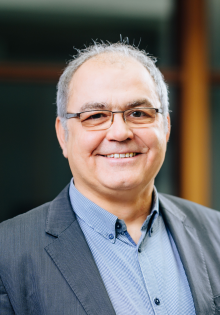Great success for "QuSine": The Paderborn University spin-off has been selected by the Federal Agency for Leap Innovations (SPRIND) for a so-called validation contract. This is a prestigious funding programme that supports ground-breaking technological developments with disruptive, i.e. market-changing, potential. "QuSine", which emerged from the "RadiOptics" research project, develops high-precision signal generators that set completely new standards in the field of high-frequency data transmission.
In contrast to conventional solutions, the Paderborn spin-off is pursuing an innovative optoelectronic approach. This allows typical interference factors such as phase noise and jitter - the tiny clock jitter in signal transmission - to be drastically reduced. The result: significantly more stable and reliable signals in the high-frequency range. "The funding from SPRIND is a significant milestone and confirms our long-standing scientific approach that future high-frequency systems can best be realised when optical and electronic circuits are combined," emphasises Prof. Dr. Christoph Scheytt, Head of the "Circuit Technology" department at the Heinz Nixdorf Institute and Co-Speaker of the Institute for Photonic Quantum Systems (PhoQS) at Paderborn University.
The new technology also opens up a wide range of potential applications, such as in quantum technology, communication and measurement technology. "The SPRIND funding impressively demonstrates the enormous potential of our spin-offs," says a delighted Prof Dr Thomas Tröster, Vice-President for Research and Academic Careers at Paderborn University.


